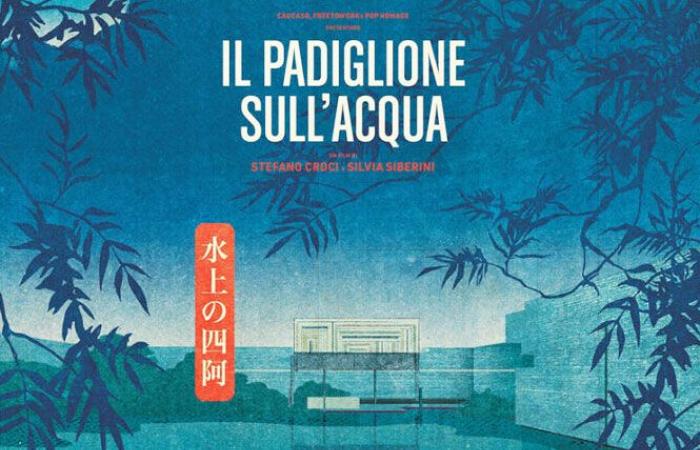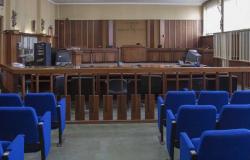
An aesthetic and poetic journey into the imagination of the Venetian architect Carlo Scarpa and his passion for Japanese culture: it is “The Pavilion on Water”, the documentary signed by Stefano Croci and Silvia Tiberini, directors of the film, which tomorrow will be, together with the two authors, at the center of the event hosted at Masseria Tagliatelle, via del Ninfeo, promoted and organized by the Council of the Order of Architects PPC of the province of Lecce starting at 7pm.
A work of poignant and delicate beauty, crossed by a feeling of nostalgia that colors the entire narrative, “The Water Pavilion” is, at the same time, also thanks to the impressions suggested by the Japanese philosopher Ryosuke Ōhashi, an interrogation on the meaning of beauty, identified as a link between the work and thought of Carlo Scarpa and traditional Japanese aesthetics, and an indirect homage to Japan which represented an inspirational universe for the Venetian architect but was also the place where he died, in 1978, the pinnacle of his career, mysteriously retracing the journeys of the wandering poet Matsuo Bashō.
Venice, as a gateway to the East and Scarpa’s birthplace, and the enchanting exploration of his works, are an opportunity to recall the poetics and emblematic episodes of the architect’s life, conveyed through the words of his son Tobia , of the students Guido Pietropoli, Giovanni Soccol and Guido Guidi, of the JK researcher Mauro Pierconti.
The nostalgia that lightly runs through the narrative and the filmic structure is “nostalgia”, write the two directors, “for that rare event which is the birth of an artist. Even though he has now abandoned this earth, he leaves as a gift his works and the wonder that they still inspire.”
The appointment will open with institutional greetings from the President of the Order of Architects PPC in the province of Lecce Tommaso Marcucci and the introduction to the vision, curated by the councilor of the Order, architect Davide Negro. At the end of the screening, the meeting and discussion with the directors Stefano Croci and Silvia Siberini.
“The work and thought of Carlo Scarpa, who loved to define himself as Byzantine at heart, is a continuous source of suggestions and inspiration for the world of Italian and international architecture – underlines the President of the Order of Architects PPC province of Lecce Tommaso Marcucci -. For this reason we are happy to once again be able to stop and reflect on his extraordinary experience thanks to the screening of this film already greeted with great favor by critics and the presence of the two authors. Who we thank for wanting to be with us tomorrow and above all for giving us a work which, through images, reflects on the beauty and essence of the artistic work that characterizes great architecture”.
NOTE
The Water Pavilion was born from the directors’ research which led to the creation of a short documentary on Carlo Scarpa (1906-1978) and Matsuo Bashō (1644-1694), The Mercy of the Wind (2014).
On his last trip in 1978 Scarpa intended to reach the ancient Japanese capital Hiraizumi. He was retracing the routes described by the poet in the travel diary he wrote before his death, The narrow path to the deep north (1694). Scarpa never reached Hiraizumi, he died in a tragic accident in Sendai, on the same day the poet died, November 28th.
Reconciling a poetic aspiration, which supports a lyrical and dreamy sensitivity, with a philosophical approach, we wanted to tell the works of the Venetian architect, not only for the high artistic value they represent, but also for the nature of his figure, which emblem of a unique meeting between tradition and modernity, between East and West.
Scarpa himself loved to define himself: «Byzantine at heart, a European who sets sail for the East».
The documentary ideally aims, thanks to the means of cinema, to make manifest and evoke the research that he carried out in this direction.
The narrative is directed along an ‘experiential’ itinerary, in which artistic, philosophical and literary suggestions, archive materials, thoughts and memories become key elements for the reconstruction of Scarpa’s cultured and emotional speech.
In the belief that this narrative mode retains within itself a certain degree of accuracy, consistent with the intrinsic impossibility of circumscribing the existence and creativity of an artist in a complete and complete portrait. And at the same time it is an opportunity to approach a discussion with universal scope, that of the essence of the work of art.
Scarpa’s work seems to insistently ask us this question which, like an enigma, requires to be resolved. But the more we delve into this attempt, the more the mystery surrounding it opens up. As if Scarpa’s work could not leave us indifferent, and forced us to continually question ourselves, on multiple levels, as artists, intellectuals, human beings. Despite being inextricably linked to the context in which it arose, it seems to present a strength capable of speaking to us deeply, overcoming geographical and cultural limitations.
Just as to enter the tea houses built by Sen no Rikyū (1522-1591) it was necessary to put away the weapons and enter as an ‘equal’ – not even the noble title had any weight in that place -, in Scarpa’s architecture one enters with the mind and with the heart in a particular disposition. The places themselves ask for it, they themselves bring about this transformation.





